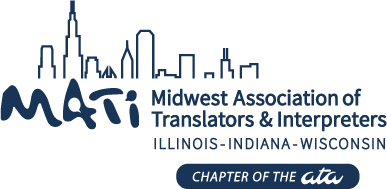Title:
Race, Power and Privilege: Building Social Justice and Racial Equity in the Professions of Interpreting and Translation (Three-Part Series)
Attendee Learning Objectives:
Participants of this three-part webinar series will reflect on their personal identities in varying social contexts. They will also examine how privilege works to normalize some identities and cultural practices over others. By identifying the intersectionality of shared and diverse identities, facilitators will encourage community and empathy within interpreting and translation circles. After becoming familiar with vocabulary and terminology related to social justice and equity, participants will work to develop a personal plan for interrupting systemic racism and developing transformative policy change in the interpreter / translator workplace.
Session Description:
Recent social movements like Black Lives Matter, current events related to immigration crises around the world, and politics that have racialized the global COVID-19 pandemic have brought to light historic racial and class disparities in the United States, while calling to action communities across the nation. The role of interpreters and translators as both cultural brokers and facilitators of language access, is intrinsically linked to action for racial and social equality in our society. Interpreters and translators themselves, often members of minority groups, are not only victims of racial policies in their workplaces, they also bear witness to racial injustices of Limited English Proficient individuals within medical, social, judicial and community contexts.
This three-part webinar series is structured to help interpreters and translators identify instances where privilege manifests as racist behavior or has been established in racist policies in the professions of interpreting and translation. By engaging participants in active learning, attendees will explore the ways in which interpreting and translation as disciplines may reproduce or perpetuate privileged and oppressive frameworks. Furthermore, we will support personal action plans that encourage effective interpersonal and intercultural communication skills. All language pairs and identities are welcome. Minorities are encouraged to participate.
Workshop #1: Exploring Power, Privilege and Intersecting Identities
In workshop 1, Exploring Power, Privilege and Intersecting Identities, attendees will work through the basic concepts related to social justice, injustice, equity and inclusion (i.e. intersectionality, systemic racism, anti-racism) in the context of interpreting and translation. Through identity building exercises, personal reflection, and both small and large group discussion, participants will gain a deeper understanding of identity politics and privilege as they manifest.
Webinar Learning Objectives:
Attendees will:
- Reflect on personal identities in varying social contexts
- Examine how privilege works to normalize some identities and cultural practices over others
- Identify shared and diverse identities
Workshop #2: My Privilege. My Power.
In workshop 2, My Privilege. My Power., attendees will carry out an exercise that encourages them to see the privileged identities that they hold and may not notice with frequency (cis-gender privilege, size privilege, age privilege…). We will also explore the work of Jackson Katz and others, that describe the illusiveness of dominant groups who maintain power by remaining invisible.
Webinar Learning Objectives:
Attendees will:
- Discuss in more depth where they hold privilege
- Analyze how this manifests visibly and invisibly
- Give examples of where power and privilege manifest in their workplaces
Workshop #3: Action Plans for Social Justice and Equity in the Professions of Interpreting and Translation
In workshop 3, Action Plans for Social Justice and Equity in the Professions of Interpreting and Translation, attendees will study, practice and develop action plans for their own work in social justice and equity in interpreting and translation. After discussing and working through case studies, participants will put forward their own ideas and practice defending them to their colleagues as a means of practice and application.
Webinar Learning Objectives:
Attendees will:
- Practice planning strategies for combatting unjust policies and procedures
- Develop an action plan for interrupting systemic racism that attendees have previously identified in the workplace
- Formulate strategies transformative policy change
- Present arguments for why their plans are useful and powerful in the context of their work
Presenters: Michelle Pinzl & Dr. Granados
Michelle Pinzl (she/her/ella) is the Coordinator of the Community Interpreting Certificate and Assistant Professor at Viterbo University where she teaches Spanish, French and Interpreting Studies. She earned her Master’s degree in Foreign Languages and Intercultural Management from the Université de Limoges in France and is currently a PhD candidate at the Universitat Autónoma de Barcelona, in Spain. She is a certified Spanish<>English Court Interpreter for the State of Wisconsin and a certified Medical Interpreter through the Certification Commission for Healthcare Interpreters (CCHI). Michelle frequently presents in the US and abroad to varied audiences on numerous topics in the field of translation and interpreting. She has been interpreting for healthcare, social service agencies, schools, businesses, as well as various sectors of the farming industry in Wisconsin since 2006.

Dr. Granados is Associate Professor of Spanish and Latin American Studies at the University of Wisconsin La Crosse. He is interested in cultural approaches on migration, social justice and the role of public scholarship in our communities. Dr. Granados serves in the role of Director of the UWL Institute for Latin American and Latino Studies and is also a medical interpreter at Mayo Health System in La Crosse, Wisconsin.

